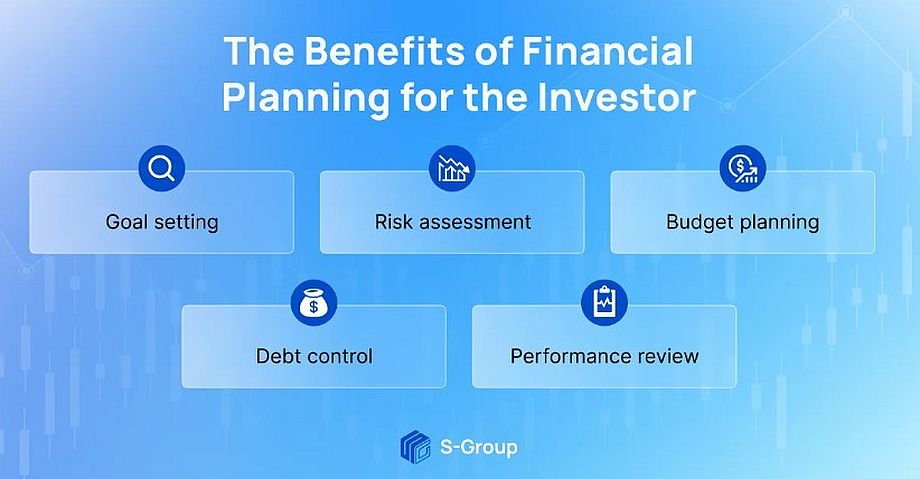Personal financial plan of an investor
To achieve goals and increase profits, it is important for an investor to learn financial planning. This skill is useful for both long-term investments and short-term Forex trading. A personal financial plan helps an investor to manage capital properly and choose the most appropriate investment instruments.
What is a personal financial plan, how to make one and why it is important in investments? We will tell you in detail in this article.
What is a personal financial plan and how to make one?
A personal financial plan is a document that contains information about an investor’s capital, income and expenses, investment strategies and financial goals. It helps the investor to better understand the current financial situation, which facilitates proper risk assessment and selection of appropriate strategies in the future.
Using a personal financial plan, an investor can effectively manage funds and identify methods that will help him or her achieve financial goals.
How to create a personal financial plan?
To begin financial planning, an investor needs to analyze the money flow, savings, financial obligations, and investment instruments he or she has used in the past.
There are a few consistent steps to help properly create a personal financial plan and make it as informative as possible.
1. Analyzing the current financial situation. To do this, the investor needs to make a list of all the accounts, assets, and physical property that he owns. Also at this stage, he should record the total income he receives, information about expenses and financial debts, such as mortgages and loans.
Fixing income and expenses is helped by special apps and websites where the investor can track the flow of funds, regular spending and impulse purchases. For example, Monefy, Wallet, Moneon.
2. Setting financial goals. At this point, the investor describes desired spending and purchases in terms of price. For a financial plan to be effective, it is important to be specific about each goal.
For example, if an investor is going to buy a house, he should study the market, decide on the location and write down in the plan the approximate amount he will need. After that, he needs to determine the time frame for the future purchase. At the end he gets a specific amount and the time for which it should be accumulated. This will be his financial goal.
If the investor has several financial goals in the plan, he should prioritize them. This will help him properly allocate capital between the goals and achieve them in the right time.
3. Creating strategies and methods. After analyzing the financial situation and setting goals, the investor creates strategies to achieve them. Having structured information about income and expenses, he determines the amount of money he needs to earn in addition to regular earnings.
Based on this information, he chooses the appropriate investment tools and trading strategies that will help to get the desired profit.
4. Adjusting the financial plan. This stage is very important in the long term. An investor’s personal financial plan must be flexible and adapt to external conditions. Adjustments can be affected by unexpected expenses, changes in the investor’s goals, and improved investment skills.
This stage also helps to track progress toward goals and objectively evaluate the effectiveness of financial planning.
The benefits of financial planning for the investor
Financial planning is an important tool for asset management. With its help an investor can analyze and improve the investment process.
Let’s look at the benefits of financial planning for the investor.
– Goal setting. A financial plan helps an investor specify financial goals and plan investments to achieve them.
– Risk Assessment. The investor can choose investment instruments that are appropriate for his or her risk level.
– Budget planning. Using a personal financial plan, an investor evaluates a budget and manages capital to free up additional funds for investment.
– Debt control. The investor monitors his or her financial obligations and plans to pay them off.
– Performance review. Financial planning allows an investor to evaluate the performance of their investment and make necessary adjustments.
Conclusion
Financial planning helps improve the investment process. Using this skill, an investor can create the most appropriate investment strategy to help him or her achieve financial goals.
A personal financial plan allows not only to adjust the investment process, but also to effectively manage capital by analyzing income and expenses. This will protect the investor from unnecessary purchases and unwarranted investment risks.



